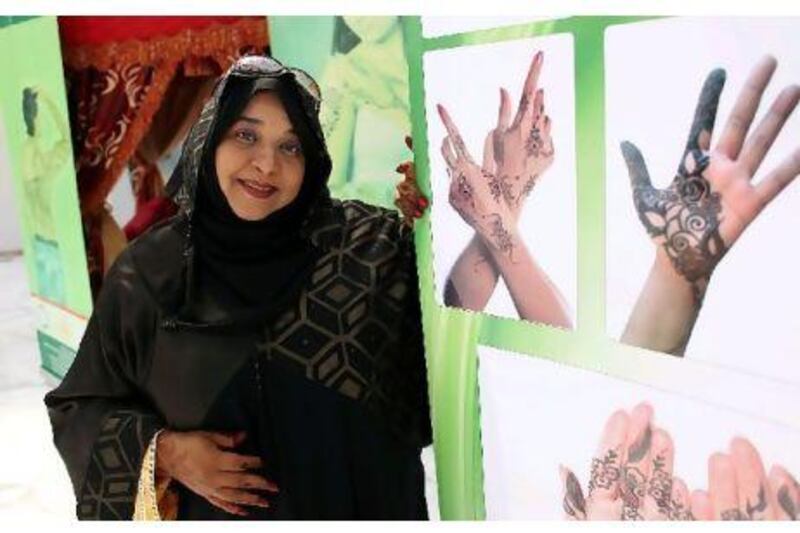Fathiya Ahmed decided almost a decade ago that heritage would be the key ingredient to her future success.
The aspiring entrepreneur set up a tent at Jumeirah Beach Hotel in Dubai to display her proficiency in the art of henna painting.
As Ms Ahmed's small business caught on with nationals, tourists and expats, she began to expand the brand, Heritage for Henna, by opening other locations at luxury hotels in Dubai such as the Burj Al Arab and Le Royal Meridien.
Pretty soon it was hard not to notice her shops, which are as small as 4 square metres, popping up in Abu Dhabi hotels and more recently near the entrance to Ferrari World Abu Dhabi.
Today, Ms Ahmed says her franchise is expanding beyond the more than 50 locations that have opened in the UAE and into the UK, Egypt and Kuwait, with interest brewing in other countries. "When I started everyone said 'it's henna'," says Ms Ahmed. "It was a very small idea. I wanted to make it a business."
Expanding a small idea into a home-grown franchise from the Mena region is by no means easy. The franchising industry here has consisted largely of business professionals looking to import successful food and beverage brands from the West.
But players in this market have recently started diversifying into other fields with a "distinct" move away from the restaurant sector, according to International Expo-Consults, which organised the Franchising Middle East exhibition this month in Dubai.
While this shift has helped to spark interest among some aspiring franchisers in this region, there are still plenty of hurdles to overcome.
Most start-ups struggle to find a business model that can be easily duplicated and remain profitable, says Chirine Ajami, the managing partner for FranCorp Middle East, a consultancy based in the US that has helped to develop more than 3,000 franchises globally, including Ms Ahmed's.
Heritage for Henna is a pretty good template, says Ms Ajami.
"Everything was duplicated - the store, the service, the concept, the operational manual. Everything," she said.
Local business professionals should also be prepared to wait much longer to secure storefront property within Mena, compared with more developed countries.
It takes an average of between three and six months to expand to a new location here, compared with just one to three months in the US, according to FranCorp.
And contrary to popular belief, property prices may not have fallen in all markets within Mena or the UAE, particularly in prominent spots, experts say.
Regional unrest is also adding a layer of complexity. One businessman who was planning to display his company's offerings at this month's exhibition in Dubai was not able to ship his merchandise in time.
"With the unrest, he couldn't get the shipment out," says Jacob Sebastian, the head of corporate planning and finance for International-Expo Consultants.
Still, says Mr Sebastian, that did not stop the businessman - or others in the region - from attending the event to meet international partners who may want to import a piece of Mena to consumers in the West.






